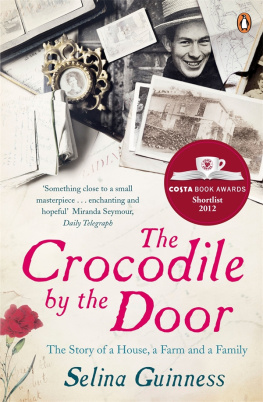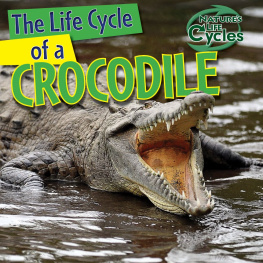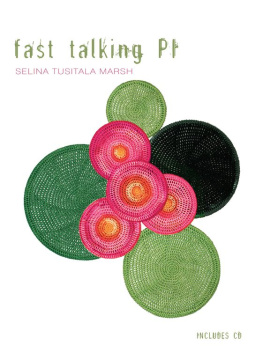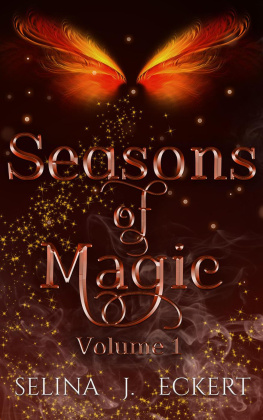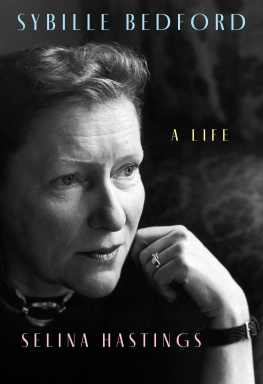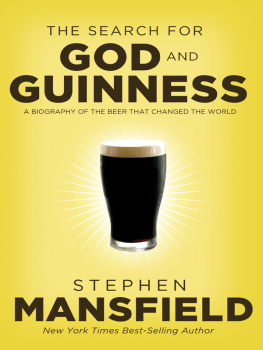Selina Guinness - The Crocodile by the Door: The Story of a House, a Farm and a Family
Here you can read online Selina Guinness - The Crocodile by the Door: The Story of a House, a Farm and a Family full text of the book (entire story) in english for free. Download pdf and epub, get meaning, cover and reviews about this ebook. year: 2012, publisher: Penguin Books Ltd, genre: Detective and thriller. Description of the work, (preface) as well as reviews are available. Best literature library LitArk.com created for fans of good reading and offers a wide selection of genres:
Romance novel
Science fiction
Adventure
Detective
Science
History
Home and family
Prose
Art
Politics
Computer
Non-fiction
Religion
Business
Children
Humor
Choose a favorite category and find really read worthwhile books. Enjoy immersion in the world of imagination, feel the emotions of the characters or learn something new for yourself, make an fascinating discovery.
- Book:The Crocodile by the Door: The Story of a House, a Farm and a Family
- Author:
- Publisher:Penguin Books Ltd
- Genre:
- Year:2012
- Rating:5 / 5
- Favourites:Add to favourites
- Your mark:
- 100
- 1
- 2
- 3
- 4
- 5
The Crocodile by the Door: The Story of a House, a Farm and a Family: summary, description and annotation
We offer to read an annotation, description, summary or preface (depends on what the author of the book "The Crocodile by the Door: The Story of a House, a Farm and a Family" wrote himself). If you haven't found the necessary information about the book — write in the comments, we will try to find it.
Selina Guinness: author's other books
Who wrote The Crocodile by the Door: The Story of a House, a Farm and a Family? Find out the surname, the name of the author of the book and a list of all author's works by series.
The Crocodile by the Door: The Story of a House, a Farm and a Family — read online for free the complete book (whole text) full work
Below is the text of the book, divided by pages. System saving the place of the last page read, allows you to conveniently read the book "The Crocodile by the Door: The Story of a House, a Farm and a Family" online for free, without having to search again every time where you left off. Put a bookmark, and you can go to the page where you finished reading at any time.
Font size:
Interval:
Bookmark:

The story of a house, a farm and a family


May 2002
Im coming back to Tibradden, to live with Charles again. Ive driven down from Belfast with boxes stacked on the back seat; Colin will follow with the rest of our belongings when his term has finished.
The sunlight picks out the carious gaps between the capping stones on the Calfpark wall as I drive up Mutton Lane. I indicate left, and sidle in through the white farm gate onto the rubble drive. The window of the gate-lodge is open. Through it I can hear Susie Kirwan shouting at Joseph, her son, over the noise of the television. Joe, Susies husband, has planted wallflowers in a bed beside the house. Nettles and frothy white elder bushes throng the lower reaches of the drive, except for a small clearing behind the cedars where the tractor stands, its bucket raised. Around the bend, the rhododendrons have shed a carpet of crushed red petals I dont feel prodigal enough to merit. Beside me, the patch of mossy lawn we still call the tennis court has just been mown.
For the past seven years, since Muriel Jackson, the housekeeper, retired, my uncle Charles has been living alone at Tibradden. I find him sitting in a deck-chair in the porch, waiting for me. He could have been sitting here since lunchtime. He puts down his paper as I draw up and beams at me. Hello, darling, he says. How lovely to see you. I kiss him and let him lead the way inside.
I set my coat and bag down on a chair and look around the hall. Nothing seems to have been touched since I was here last. The big copper jug in which my grandmother once arranged honesty and everlasting flowers sits on the marble-topped chest inside the front door. Boxes of light-bulbs poke out of the top. Beside the jug grins the crocodile, car keys dangling from a front incisor. My great-grandfathers brother, Henry, shot it in Persia and sent the head to a taxidermist in Piccadilly to be turned into a letterbox for his six siblings at home.
When I was a child, Charles used to lift me up to slide papers through the brass slot in its gullet. That such an exotic beast could become merely another item of household furniture did not surprise me: Tibradden was a place where astonishing things were everyday items. You might come across anything from a blue kimono embroidered with gold dragons to a box containing my grandfathers prosthetic right arm. These items could be worn, handled, used as props in whatever make-believe world we cared to create; we were as free to play with them as we were with our own Lego.
All post, I remember my uncle explaining, used to leave Tibradden through the crocodile. You see, here at the back, and he would swivel the head sideways, is the door for the postman. Only he had the key. When there were lots of brothers and sisters living in this house, they didnt want anyone to know whom they were writing to, so they posted their letters in here. Look, like this.
He would take a discarded envelope and lift me up to push it through the slot. Id watch as he turned the crocodiles head fully round to unlock and open the door. Once more hed pick me up so that I could reach in and triumphantly pull the envelope out for his applause.
The crocodile still sits here by the door, like a guardian of the house, or a god to be propitiated, its jaws open for whatever intimacy I might care to throw its way. It serves as a kind of cloakroom where you can check in your secrets, permitting you to proceed light and unencumbered to take tea in the drawing room. In this house, there is a way of talking that repels disclosure while remaining kind and affectionate; we observe a generous distance from each other at the risk of lapsing into silence. The important thing is not to intrude too much on the patterns of the day. My uncle used to start humming tunelessly if a visitor introduced a topic he judged difficult for himself or my grandmother. Money was one trigger, the human body another. My mother used to set off entire song-cycles when I became a teenager.
Now that I am moving in with Charles, I know I must practise the discretion symbolized by the crocodile and respect my uncles privacy. But this might not be easy. My uncle has spent the past seven years inhabiting his house free of female interference. Neither he nor the house looks well on it. Dust and inertia have settled over all. For years, Charles, who has just turned seventy, has stepped round difficulties that can no longer be deferred. When he suggested, two years ago, that Colin and I share the house with him, he must have known that things would have to change, but I doubt he has anticipated the scale of works required to update the house to meet our needs. Most of these are physical: the leaking roof must be fixed, the lead-wiring and rotting window boards replaced, the flammable chimneys cleaned the list goes on. All of these will take time and money, but they will also require negotiation of much larger questions about the future of Tibradden. I am not sure how to broach these over the coming months without triggering the humming. And yet, on several occasions, my uncle has reminded me, You pretty well started out your life here. This is as close as he can come to saying I should consider his house my home.
A fortnight after I was born, my parents came to stay at Tibradden for a few weeks so that Charles and my grandmother, Kitty, could help look after me. It was a difficult time for everyone: the household was still in mourning for my grandfather, Owen, who had unexpectedly passed away in his sleep just two weeks before I was born. I had colic, but my grandmother mistook my cries for hunger and insisted on adding solids to my feed when I was just a month old. My father took his wifes side, and fought with his mother. Charles boiled kettles and made bottles, and kept out of the disputes. Later hed remember this as a happy time.
For the next eleven years I had a fairly conventional suburban childhood. Our bungalow, located in an estate a few miles downhill from Tibradden and a few miles uphill from the Irish Sea, was still very new in 1972 when my parents moved there from Churchtown, in need of an extra bedroom now my mother was pregnant again. My younger brother, Niall, and I went to the local primary school, rode bikes and played out on the greens with all the other kids on the road.
On Sundays we donned our best bib and tucker and went for lunch to Tibradden. Charles was my fathers only sibling, his senior by nine years. He and Kitty sat at either end of the dining-room table. I sat on one side, next to Niall, while Dad and Mum sat on the other. When you rang the bell Muriel, dressed in her starched white pinafore with crossed straps at the back over her black blouse, pushed the trolley in. You sat still and were served by Muriel or my grandmother out of stoneware dishes onto willow-pattern plates. The vegetables all came from the kitchen garden where Paddy Flanagan, the gardener, grew them from seed. One of the adults would cut up our meat because the bone-handled knives were blunt, or so they said. As I grew taller I used to slip off a shoe and shine up the ball-and-claw foot of the dining-room table. Afterwards, if wed been good, wed be given squares of Dairy Milk from the chocolate drawer in the drawing room.
When I was nine, my parents separated. In Ireland, in the early 1980s, this made us the object of whispered concern in our suburb. My parents managed their separation without obvious rancour. Dad moved into a flat in Ranelagh, which he thought shabby and we thought sophisticated on account of the intercom system and lift. There was a waste-grinder in the kitchen sink into which you could feed whole eggshells. We went to stay with him every other weekend. On wet Sundays his chess friends would come over and empty their matchboxes to teach us how to play poker and pontoon. Other times hed take us on outings to historic sites or, better still, the races and Bray amusements, before returning to cook dinner from Robert Carriers
Font size:
Interval:
Bookmark:
Similar books «The Crocodile by the Door: The Story of a House, a Farm and a Family»
Look at similar books to The Crocodile by the Door: The Story of a House, a Farm and a Family. We have selected literature similar in name and meaning in the hope of providing readers with more options to find new, interesting, not yet read works.
Discussion, reviews of the book The Crocodile by the Door: The Story of a House, a Farm and a Family and just readers' own opinions. Leave your comments, write what you think about the work, its meaning or the main characters. Specify what exactly you liked and what you didn't like, and why you think so.

